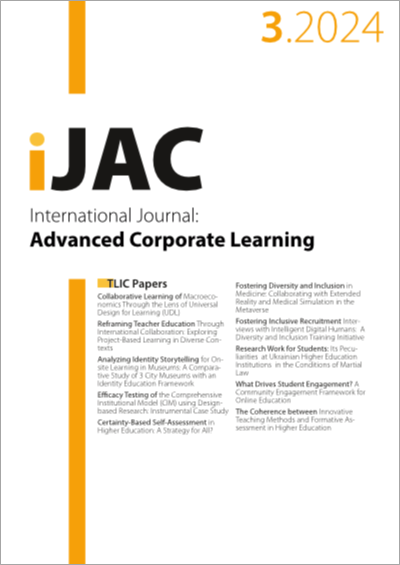What Drives Student Engagement?
A Community Engagement Framework for Online Education
DOI:
https://doi.org/10.3991/ijac.v17i3.45729Keywords:
Student Engagement, Online Education, Social Capital, Cognitive Presence, Teaching Presence, Social PresenceAbstract
Cultivating a sense of community can be difficult in online education. We build on the work of Redmond et al. [9] and their proposal of an Online Engagement Framework for Higher Education to investigate online course designs and pedagogies that are likely to foster increased perceptions of social capital, confidence, and resilience in the learning process among students. Our research builds on the student-engagement themes proposed by Redmond et al.: cognitive, behavioral, collaborative, and emotional engagement; these forms of engagement can be facilitated by online course design and pedagogy. These types of engagement, in turn, help foster students’ social engagement, which, as a manifestation of social capital, is linked to better learning outcomes, increased confidence, and resilience in the online learning process. Following a comprehensive literature review that draws on concepts from the community of inquiry and community of practice frameworks, we propose a new model—a Community Engagement Framework for Online Education. With this model, we aim to identify the elements of online course design and pedagogy that correlate with increased student social engagement and, therefore, increased students’ social capital. Our model is more theoretically complex and analytically sound than previous proposals, rendering applicability through testing with real-world data. Future studies can use this model to survey online students and cross-validate it using path analysis and structural equation modeling. Future research can also survey online instructors to identify practical uses of our proposed engagement constructs.
Downloads
Published
How to Cite
Issue
Section
License
Copyright (c) 2024 Roxana Toma, Matthew Berge

This work is licensed under a Creative Commons Attribution 4.0 International License.



